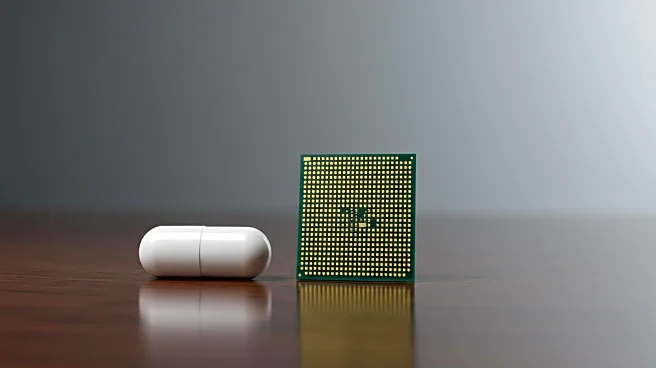What's Happening?
The Trump administration has announced a decision to limit tariffs on pharmaceuticals, lumber, and semiconductors imported from the European Union to 15%. This move comes after President Trump had previously threatened much higher tariffs on these industries. The agreement also includes plans for the EU to purchase U.S. energy and AI technology, with expected investments totaling $750 billion through 2028. The EU has committed to investing an additional $600 billion in strategic sectors in the U.S. The announcement is part of a broader trade agenda that has seen the U.S. lock in tariff rates for imports from multiple countries.
Why It's Important?
The decision to cap tariffs at 15% is significant as it may help alleviate inflationary pressures caused by higher tariffs. The agreement could lead to increased trade and investment between the U.S. and the EU, benefiting industries such as energy and technology. However, the tariffs could still impact the cost of imported goods, affecting consumers and businesses. The EU's investment commitments, while substantial, are described as expectations rather than firm promises, which could influence future economic relations.
What's Next?
The U.S. plans to roll back tariffs on certain EU goods to pre-January levels starting September 1. The EU's energy and AI technology purchases will be monitored to ensure compliance with the agreement. The U.S. may reduce auto tariffs on European imports if the EU introduces legislation to lower its industrial tariffs.









